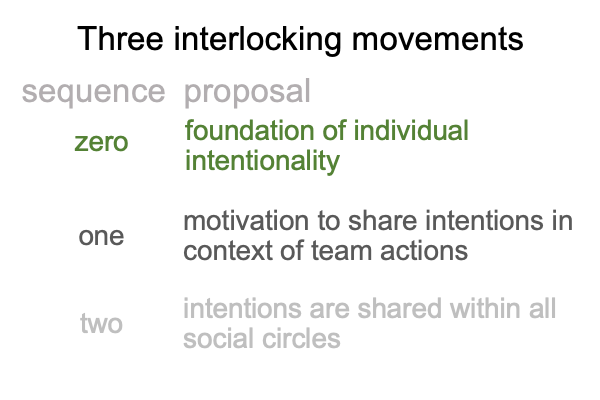0187 In the preface, the author notes that this book is a prequel to The Cultural Origins of Human Cognition (1999, Harvard University Press). The question is the same. What makes humans unique? The answer is the same. Humans think differently than great apes, their closest biological kin.
In 1999, researchers in evolutionary anthropology could say, “Only humans think of other humans as intentional agents. Plus, my cat and my dog are intentional operators, as well, say nothing of the weather.”
Okay, I added the second sentence for dramatic effect.
Unfortunately, research conducted after 1999 introduces a problem. It turns out that great apes recognize intentionality in others.
Uh oh.
0188 This book is the third marker in Tomasello’s intellectual journey. I start following his trek with Looking at Michael Tomasello’s Book (1999) “The Cultural Origins of Human Cognition” (appearing in Razie Mah’s January 2024 blog). The second marker that I examine may be found in Looking at Michael Tomasello’s Book (2008) “Origins of Human Communication” (appearing later in the same blog for the same month).
0189 In the publication before me, A Natural History of Human Thinking (2014, Harvard University Press, Cambridge Massachusetts), Tomasello explicitly abstracts three cognitive processes in order to distinguish humans from apes. The processes are cognitive representation, inference and self-monitoring. He then proposes that all three components were transformed in two key steps during hominin evolution. He labels his claims, “the shared-intentionality hypothesis”.
0190 Does this follow the trajectory set by previous works?
Here is a theme that appears in the second marker, pre-emptively modified with the above propositions in mind.

0191 This modified picture allows me to offer slogans for movements zero and one.
For zero, the slogan is “I work for food.”
For one, the slogan is “We work for food.”
